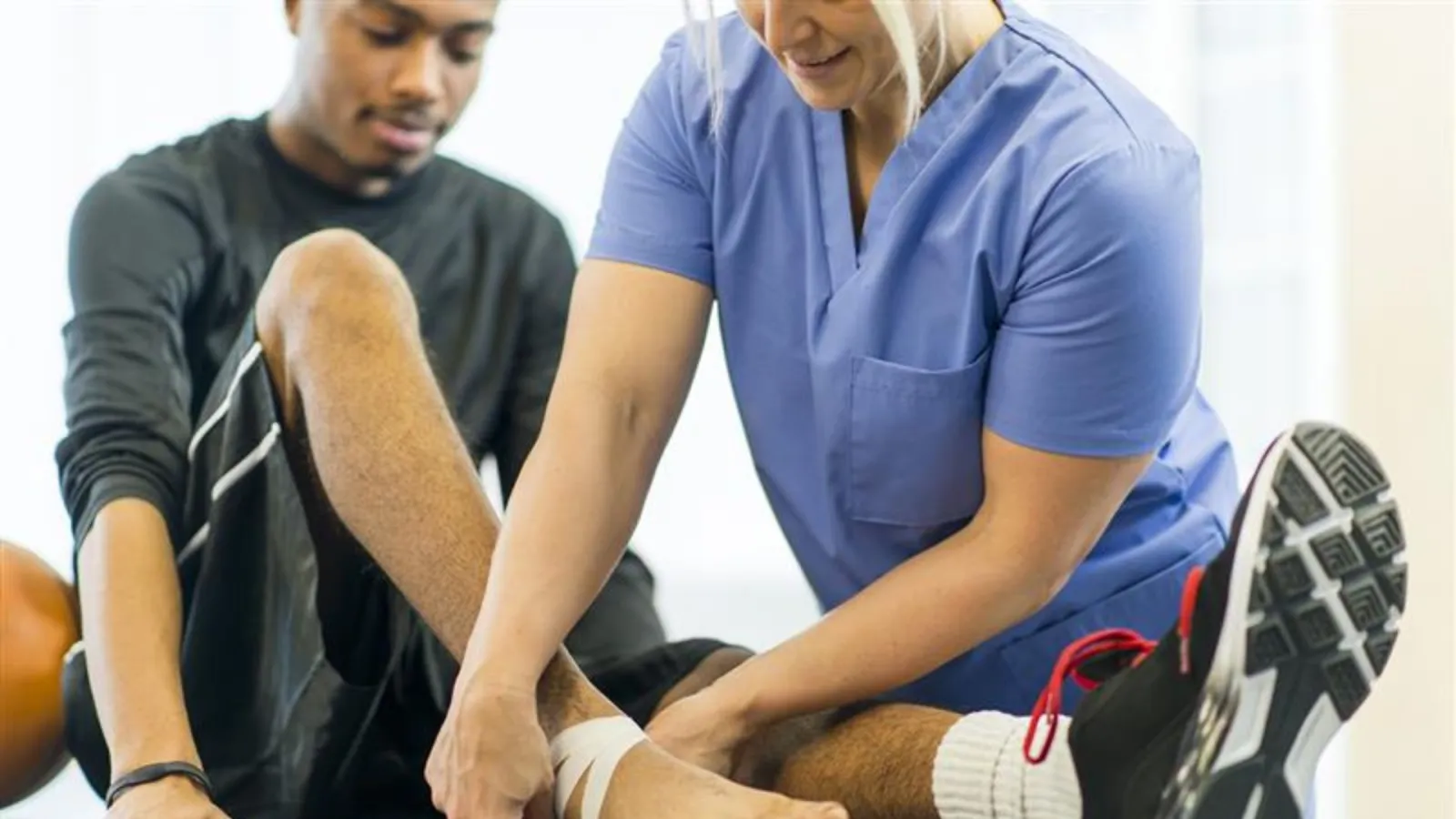
Five Conditions You Shouldn’t Train Through, and What to Do Instead
As runners, we know the difference between a minor ache and a serious setback isn't always obvious. A little soreness is part of playing any sport, but some injuries and warning signs shouldn't be pushed through, especially if you're training for a race.
Ignoring the early stages of certain conditions can turn a minor issue into something that lingers long after race day. If your goal is to toe the starting line strong and cross the finish line healthily, knowing when to rest and when to seek treatment is key.
Here are five conditions you shouldn't train through, and why early care now can save your season later.
1. Persistent Knee Pain
Mild soreness after a long run is common, but if knee pain lingers, worsens with activity, or starts to affect your gait, it's time to pay attention. Issues like runner's knee or cartilage damage can sneak up over time.
Don't ignore:
- Pain climbing stairs or walking downhill
- Grinding, clicking or instability
- Swelling that lasts more than 48 hours
Treating knee pain early may involve physical therapy, rest, targeted strengthening or imaging to rule out structural issues. Waiting too long can result in chronic inflammation or long-term wear.
2. Achilles Tendon Irritation
Tight calves and sore Achilles tendons are common among distance runners, especially after speedwork or hill training. But sharp pain, stiffness that lasts beyond your warm-up or swelling around the tendon can signal Achilles tendinitis, an overuse condition that needs prompt attention.
Signs to watch for:
- Morning stiffness or pain at the back of the heel
- Difficulty pushing off or climbing stairs
- Swelling or a visible "bulge" along the tendon
Early intervention may include rest, eccentric strengthening, shoe adjustments or activity modification. Ignoring it can lead to a partial tear or a full rupture, both of which could require surgery or long recovery periods.
3. Stress Reaction or Stress Fracture
These are some of the most frustrating injuries because the symptoms can feel vague at first. A stress reaction is a precursor to a stress fracture, and catching it early is critical to avoiding months off your feet and away from training.
Common warning signs:
- Bone-deep pain during or after runs
- Pain worsens with weight-bearing
- Tenderness to touch along a specific area (shin, foot, hip)
Running through a stress injury risks a full fracture. A diagnosis typically involves a physical exam and imaging. Fortunately, when caught early, many stress reactions can heal with a few weeks of modified activity. If a full fracture occurs, it may be a couple of months before you are back to full activity.
4. Plantar Fasciitis
Heel pain that greets you first thing in the morning might be an early warning sign of plantar fasciitis. This inflammation of the tissue band along the bottom of the foot can become a long-term battle if not addressed early.
Don't train through it if you notice:
- Pain with the first steps in the morning
- Sharp or stabbing sensations in the heel or arch
- Increased pain after long runs or standing for extended periods
Treatment can include stretching, orthotics, anti-inflammatories and rest from high- impact training. The earlier it's treated, the quicker the recovery.
5. Recurring Hip or Lower Back Pain
Pain that radiates, causes numbness or alters your stride is more than an annoyance, it's a warning sign. Conditions like sacroiliac joint dysfunction, lumbar disc issues, or hip labral tears can cause persistent discomfort and increase the risk of compensatory injuries.
Seek help if you experience:
- Radiating pain down the leg
- Numbness or tingling
- Pain worsens with sitting, standing, or running
These conditions often require evaluation, physical therapy and training modifications. Left unchecked, they can lead to more serious biomechanical breakdowns.
Don't Wait Until the Pain Sidelines You
Early evaluation and expert care can make all the difference in your training plan. If you're dealing with persistent pain or unusual symptoms, connect with a specialist at Resurgens Orthopaedics, the title sponsor of Atlanta Track Club and Atlanta Beltline's "Race the Loop" series. Trusted by Atlanta's running community for comprehensive orthopedic care, we have 25 convenient offices throughout Atlanta. Visit resurgens.com to find a location near you and schedule your appointment online today.

